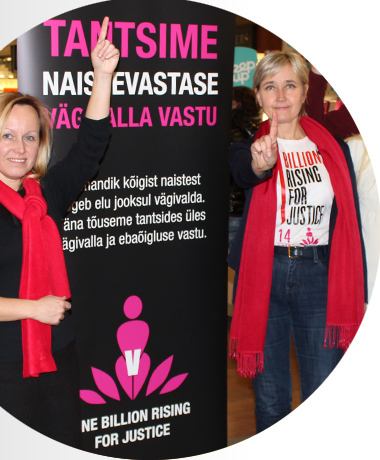Kõne: Woman in Estonian society
Friday, 27.05.2005, 12:18 / SEISUKOHAD / RSS
Summary
Estonian society, like any other society, treats women and men differently. Today’s
Estonian society still fails to perceive and recognise gender inequalities, among them
also the facts that women do more routine jobs, earn about one fourth less than men,
have fewer opportunities to participate in decision-making and shaping our society.
Estonia’s nature and history have fashioned a special species of woman – the strong
Estonian woman – who is supposed to be able to provide subsistence for two kids and
the husband. This assumption is one of the reasons why Estonian society refuses to
see gender inequalities, the other major one being that we still believe in Soviet-time
slogans of full equality where there was actually a large gap between the declared de
jure and the de facto
gender equality.
Even though there is no country in the world where discrimination against women
would have been fully liquidated, this cannot be an excuse for non-action by
governments, including the Estonian one. Estonian government should create the
appropriate legislative framework to improve the position of women in society and in
the labour market, including in the employment relationship.
The major obstacle to women’s careers and ground for gender discrimination is
maternity. Taking parental leave and stepping off the career path exercises a negative
impact on women’s employability and career advancement. Women do not actually
want to be forced into the situation where they have to choose whether to have a
career or children. The majority of them would like to combine both.
Surveys show women have faced greater difficulties under Estonia’s transition to a
market economy compared to men. At the start of re-endependence women’s role as
mother, home-maker and care-giver started to be promoted and lots of women chose
to stay at home which led to dropping employment rates among women. Soon it was
realised gainful employment provides a more satisfying career and increased
economic independence and family well-being. Attitudes are changing at fast pace
relative to the role of women in society where women are not ascribed the role of the
home-maker only any more.
Development of a balanced society and progress toward gender equality also
presupposes changed attitudes where men can show openly, without the fear of social
condemnation, show that they attach primary importance to the family and intimate
relationships and appreciate the jobs traditionally filled by women.
Estonian women have to stand up for their rights like women in the Nordic countries
where such actions were launched some four or three decades back. The goal would
be that the economic worth of women’s invisible unpaid work starts to be properly
valued and a supportive environment would be created enabling women to combine
paid employment with their responsibility for children; that the decision-making is
shared by men and women and the decisions passed take equally into consideration
women’s and men’s needs and concerns.
This is a complex and lengthy process which starts with the understanding that taking
care of the family and children is women’s and men’s shared responsibility. The
process presupposes among other things starting teaching children principles of
gender equality, i.e. the ABC of democracy, from first days at school.
In expediting this process, women should not be impeded by lack of courage, women
can manage if only they are determined to do so.

